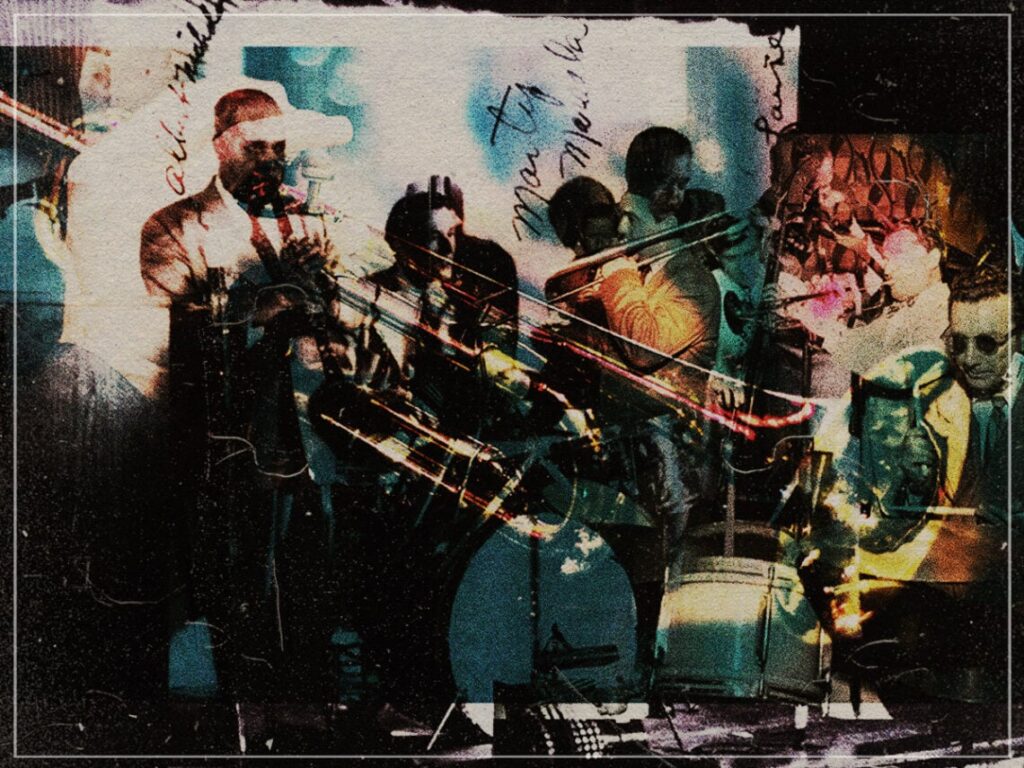The ripples of punk’s sinking stone: Is there such a thing as “toxic authenticity”?
 Posted On
Posted On
(Credits: Far Out / Chris Bair / Bunky’s Pickle / William P Gottlieb)
It’s difficult to pinpoint precisely when authenticity in music became important; however, the birth of romanticism would be a good place to start in terms of contemporary music. Before that, making symphonies was similar to playing sports; you did it to be the best. Whoever could make the most intricate and complex music was winning, and composers were keen on flexing their melodic know-how. When romanticism came in, things changed.
When composers embraced the romantic movement, it became less about flexing their artistic muscles and more about making music that spoke to people on an emotional level. Bach put it best when he said, “A musician cannot move others unless he too is moved… in languishing, sad passages, the performer must languish and grow sad… Similarly, in lively, joyous passages, the executant must again put himself into the appropriate mood.”
This became the most popular approach to music and is still so today. When people write songs, they tend to do so from a place of honesty, drawing from relationships, times of happiness, times of sadness, grievances, and periods of anger, all to create music that resonates with a broader audience.
Then, as music developed, so too did the themes that people wrote about. There were iterations of protest music long before the punk movement (such as noise and free jazz), but punk was the first time complaints about the government and monarchy were laid out bare and managed to navigate their way into the mainstream. One of the bands that pioneered this movement was the Sex Pistols, with John Lydon (Johnny Rotten) at the helm. One of the main aspects of punk that he held in the highest regard was its authenticity.
Lydon said, “Early 1970s Britain was a very depressing place. It was completely run-down, there was trash on the streets, total unemployment – just about everybody was on strike. Everybody was brought up with an education system that told you point blank that if you came from the wrong side of the tracks… then you had no hope in hell and no career prospects at all.”
The punk singer continued, “Out of all that came pretentious moi, and the Sex Pistols, and then a whole bunch of copycat wankers after us.”

The copycats Lydon talks about are some of the other punk bands who made it big at the time. For instance, he was never a fan of The Clash, claiming that Joe Strummer lived a different life from the one he preached. “Look, he pretended to hop off buses, you know, like in his studded leather jacket,” he said, “It’s nothing personal. I liked Joe. But you can’t be a champagne socialist; you’ve got to be more honest with us than that.”
Since punk, there has always been a divide among music lovers, as many people believe that for the public to buy what a musician is selling, it needs to come from a place of honesty. Those born in upper-class backgrounds have no right to talk about injustice because they have never been on the receiving end of it. Equally, the rich and famous cannot speak about baseline human emotions because their perception of the world is far from what the regular person experiences. While honesty in music is important, and for us to connect with a song, we also need to connect with the person singing it, does this mindset also usher in a toxic side to music consumption?
Jack White believes so, too. He once spoke about the negatives of authenticity in music, denouncing that every artist has to have a story, and without one, their work is nothing. He started by defending artists who don’t write their own songs, saying, “The country world never cared about that from day one. Robert Johnson didn’t write his own songs, and people forget about that.”
He continued, discussing the need for every band to have a story: “Throughout history, we’ve been sold authenticity over and over. The English press are the kings of it,” he said. “You’ve got to ask yourself about the White Stripe’s appeal to England had we been from Los Angeles instead of Detroit. The story of the city of Detroit became our authenticity, that dirty, crumbling town.”
White’s point begs the question: While it can be good for an artist to have a story attached to them, are we so bogged down in authenticity that we let it get in the way of good music? If a punk band released a song that gets to the heart of problems with the way a country is run, but they were also from privileged backgrounds, are we depriving ourselves of important music by putting their backgrounds before their art?
It could be argued both ways, and in that instance, the artist’s intention becomes the most prominent thing. People should ask whether the message comes from a place of sincerity, not whether it can be classed as sincere because of who’s saying it. There certainly should be a level of honesty and a connection to music, but that can come in various ways, and we shouldn’t dismiss art just because it comes from someone we might not identify with.
[embedded content]


